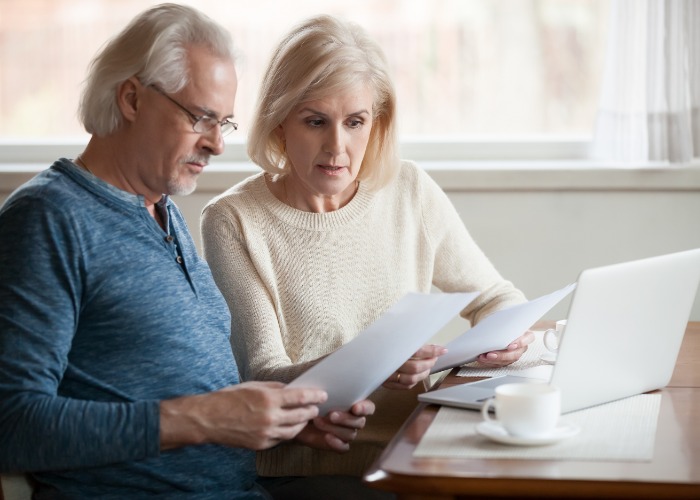Common mistakes to avoid when you’re about to retire

You've done the hard work, so don't throw it all away now! Here are some of the common retirement errors to avoid.
We spend our working lives building towards retirement. It has never been more important to understand your options and put a plan in place.
Here are six common mistakes you should avoid.
Not having a clear retirement plan
Retirement does not necessarily mean stopping work completely, being a certain age, or even drawing on pensions.
For most people, it does mean spending less (or no) time working, but how will you fill those extra hours every week?
The first step is to work out what you want from your retirement. Take some time out to consider what your priorities are and how you would like to spend your time.
What you want to do may well change over time, but there may be some things that are best done early on.
If you're in a relationship, talk to your partner and agree what you want the purpose of your retirement to be.
The best time to see a financial adviser is in the years before you retire – too often we meet new clients after they’ve retired.
Underestimating the cost of retirement
People tend to think they’ll spend less when they retire, and it’s certainly true that some expenses will go down, such as commuting costs.
But other expenses could well increase.
A good first step is to think about your day-to-day spending and then consider other expenses such as extended holidays or obligations such as paying for the care of a relative.
With many people enjoying a 20 or even 30-year retirement, the challenge is to make the most of it without running out of money.
So, budgeting is a key part of retirement for most people.
How much you really need to retire
Relying solely on your pension
Traditionally, we have thought about pensions as the primary way of funding this chapter of our lives and they remain the cornerstone of good retirement planning.
But with limits on both the size of pension funds and the contributions you can make, as you plan for your retirement, you should consider that your income may come from a range of sources.
These include the State Pension, personal or workplace pension schemes, your savings or investments, or even a rental property.
Lots of people automatically start to draw from their pension instead of their other assets. Pensions are free of Inheritance Tax, so for lots of people it makes sense to use savings or other investments first.
Drawing on a number of sources can also help reduce the amount of tax you pay.
Cashing out your pension and putting it in a bank account
A study by Citizens Advice found that 30% of people accessing their retirement pot under pension freedoms are simply depositing their cash straight into low-interest bank accounts that fall well short of inflation.
Apart from the loss of returns, pension withdrawals can have significant tax implications.
Once you’ve taken the 25% tax-free lump sum, any further withdrawals are added to your income to assess how much tax should be paid.
If you’re still earning a salary, you could easily find yourself paying 40% or even 45% tax on your pension money.
In many cases, HMRC applies ‘emergency tax’ to the payment. This means they assume you will be receiving the same payment every month and tax you accordingly.
It’s up to you to then reclaim the extra tax paid, which you can’t always do immediately.
Read: how to beat the pension withdrawal emergency tax
Many people opt for cash over investment because they feel uncomfortable with investment risk, particularly in the approach to retirement.
If you feel more comfortable with cash (despite the effects of inflation) it’s important to remember this option is available without taking the money out of your pension.
Taking tax-free cash too soon
For lots of people, the prospect of a big lump sum payment is one of the things to look forward to once you retire.
But you don’t have to take the tax-free cash as soon as you retire.
If you can leave the money invested in your pension, you might find investment growth gives you a larger sum in a few years.
You also have the option to spread the tax-free cash payment over a number of years, rather than taking it all at once.
These days, lots of people feel they should use this money to help their children buy property or pay off student debt.
It’s important to think of the impact on your own wellbeing if you give away a big chunk of your pension.
Once you’re retired, it’s very difficult to build up further assets to replace those given away.
Becoming too cautious as an investor
Following the pension changes in 2015, retirees prefer to keep control of their capital and drawdown income as required.
With income drawdown, it is up to you to make sure that your money lasts long enough.
Traditionally, people approaching retirement look to reduce the level of investment risk (and potential return) that they may receive.
But with retirements spanning multiple decades, this money needs to last a very long time. This suggests that retirees need to take more investment risk to avoid running out of money.
A combination of investment income and capital growth can help counter the impact of inflation as cash interest rates are unlikely to suffice for most people.
If you want to learn more about retirement planning, read our comprehensive guide to pensions.
Comments
Be the first to comment
Do you want to comment on this article? You need to be signed in for this feature
